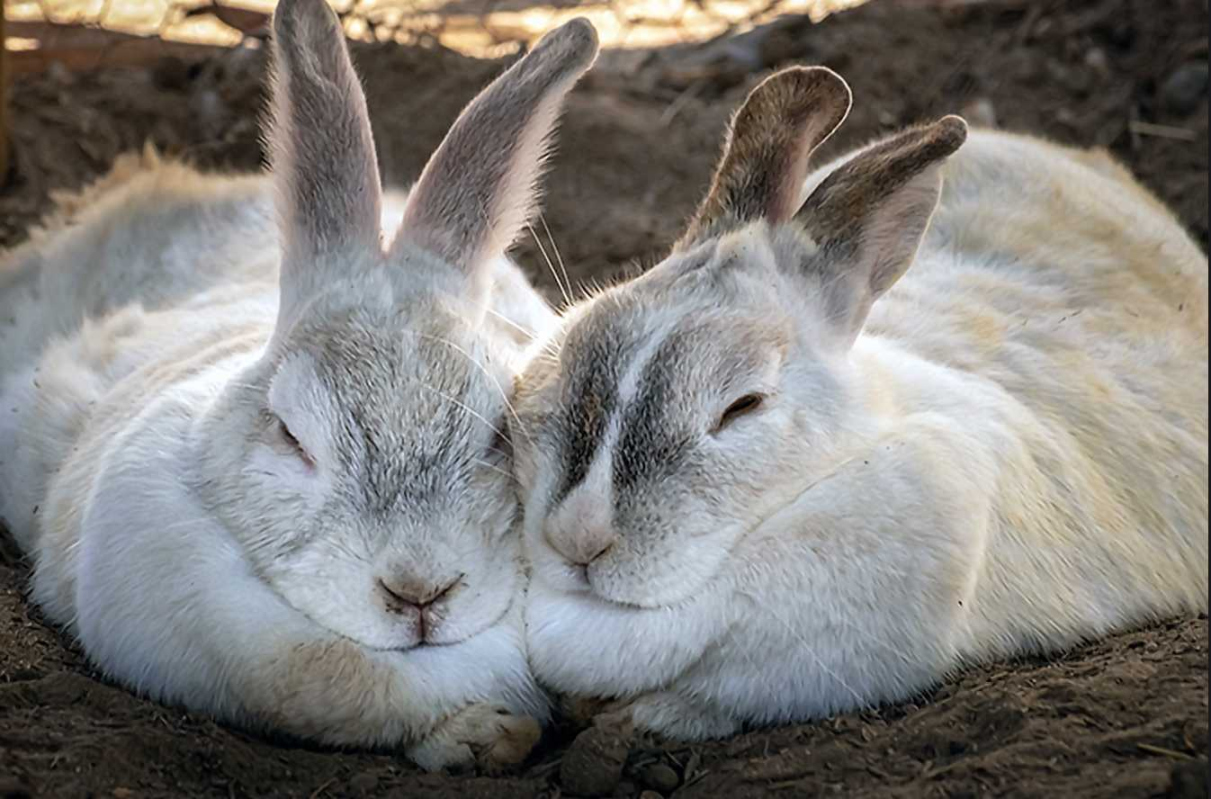How to Tell If a Rabbit is In Heat
Rabbits, like many other animals, go through reproductive cycles. A female rabbit, also known as a doe, experiences a period of fertility called heat or estrus. It is important to be able to recognize when a rabbit is in heat, as this can be an indication that she is ready to breed or may require special care. In this article, we will discuss the signs and behaviors that can help you determine if your rabbit is in heat.

Signs of Heat in Female Rabbits
Physical Signs
During a rabbit’s heat cycle, there are several physical signs that you can look out for:
- Swollen vulva: One of the most visible signs of a rabbit in heat is a swollen vulva. It may appear redder and more prominent than usual.
- Restlessness: A doe in heat may become more restless and jumpy. She may frequently dig or scratch at the ground.
- Increase in urine marking: When a rabbit is in heat, she may urinate more frequently and mark her territory with urine to attract potential mates.
- Changes in behavior: A doe in heat may also exhibit changes in behavior such as increased vocalization, aggression, or a desire for attention.
Behavioral Signs
In addition to physical changes, a rabbit in heat may also display certain behavioral signs:
- Mounting: When a doe is in heat, she may mount other rabbits or even objects in an attempt to simulate mating behavior.
- Flirtatious behavior: A rabbit in heat may exhibit flirtatious behaviors such as chin rubbing, tail wagging, and circling around potential mates.
- Seeking attention: Some rabbits become more affectionate and seek more attention from their owners or caretakers when they are in heat.
- Increased grooming: A doe in heat may spend more time grooming herself, paying extra attention to her genitals.
How Long Does Rabbit Heat Last?
The duration of a rabbit’s heat cycle can vary depending on several factors, including the individual rabbit and the breed. On average, a doe’s heat cycle lasts for about 14 to 16 days. However, it is important to note that rabbits are induced ovulators, which means they only release eggs in response to mating or other stimuli. Therefore, a doe’s heat cycle may continue until she mates or until the stimulation ceases.
FAQs about Rabbit Heat
Can I spay my rabbit to prevent heat cycles?
Yes, spaying your female rabbit (doe) is a recommended option if you do not plan to breed her. Spaying not only prevents heat cycles but also helps reduce the risk of certain reproductive-related diseases such as uterine cancer.
Can rabbits get pregnant at any time during their heat cycle?
No, rabbits can only become pregnant when they are receptive to mating, which typically occurs during the latter part of their heat cycle. It is important to monitor their behavior and remove the male rabbit (buck) if you do not intend to breed them.
How can I help alleviate my rabbit’s discomfort during the heat?
Providing a quiet and comfortable environment can help ease your rabbit’s discomfort during the heat. You can also offer distractions such as toys and provide extra attention and affection to help keep your rabbit calm and content.
What should I do if my rabbit shows signs of aggression during the heat?
Increased aggression can be a common behavior during a rabbit’s heat cycle. If your rabbit is displaying aggression, it is best to give her space and avoid handling her unless necessary. Consult with a veterinarian or an experienced rabbit caretaker for guidance on managing aggressive behavior during heat.
Remember: If you notice any unusual or concerning signs in your rabbit or are unsure about her heat cycle, it is always best to consult with a veterinarian who specializes in rabbits for proper evaluation and advice.
Recognizing when a rabbit is in heat is crucial for responsible rabbit care. By observing both physical and behavioral signs, you can determine if your rabbit is in the breeding stage of her reproductive cycle. Remember, each rabbit is unique, and their heat cycles may vary slightly. Providing appropriate care and understanding your rabbit’s needs during this period is essential for her well-being.
Related Articles…
Copyright Notice:
All images featured on this site are sourced from the internet, copyrights belong to respective owners. Should you own any image and require it to be removed, please contact us.